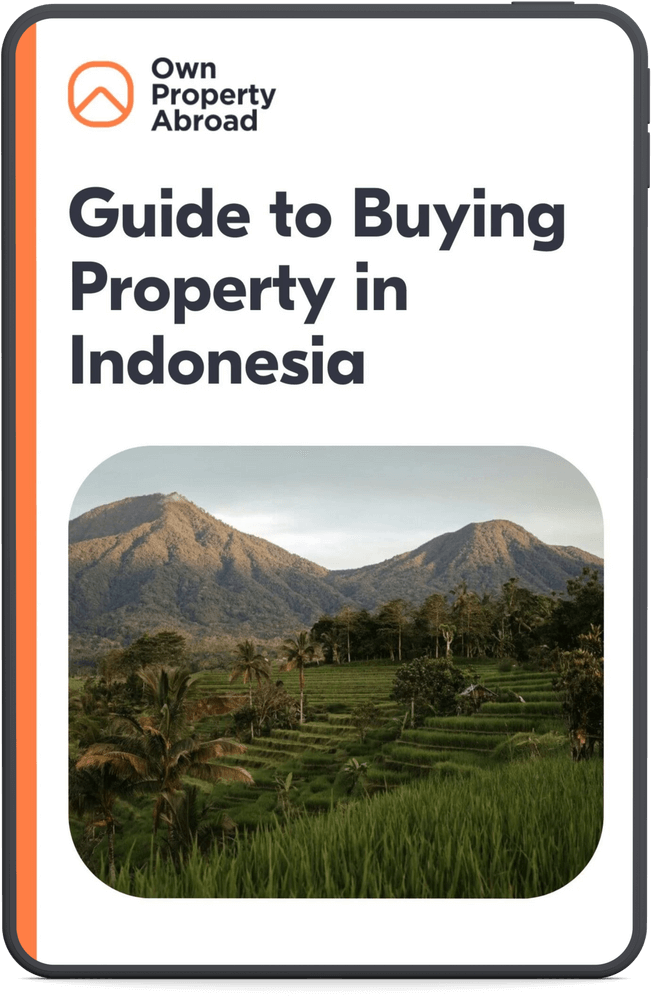How does tax residency in Indonesia work?
The tax system in Indonesia can be complex and overwhelming for foreigners. However, it’s essential to understand Indonesia’s tax residency when you consider moving to Indonesia or want to generate income in Indonesia through property rentals, for example.
Individuals are considered tax residents if they reside in Indonesia for more than 183 days in 12 months or intend to reside in Indonesia indefinitely. Foreigners can register themselves as tax residents at Indonesia’s tax authority. Tax residents are obligated to pay taxes on their worldwide income, while non-residents are taxed only on income earned within Indonesia.
Valuable insights and practical advice, distilled from years of expertise and real-world experience.


Taxable personal income
Indonesian tax residents are liable for income earned worldwide. Non-residents are subject to a general withholding tax (PPh) of 20% of their income in Indonesia. Indonesia’s withholding tax for non-residents is also considered the rental income tax for foreigners who rent out property in Indonesia without having a PT PMA or are tax residents in Indonesia.
However, the withholding tax might be deducted to 10% if a Double Taxation Agreement (DTA) exists between Indonesia and the country of residency. Foreigners can apply for DTA benefits by filing either a ‘Certificate of Domicile of Non-Resident for Indonesia Withholding Tax’ or a tax residency certificate in Indonesia.
You can find thorough corporate tax information for foreign-owned companies (PT PMA) in this guide. Indonesia’s tax rates for foreigners who are tax residents in Indonesia are shown in the table below.
| Income | Tax rate |
|---|---|
| Up to IDR 60 million ($3,660) | 5% |
| IDR 60 million ($3,660) – IDR 250 million ($15,250) | 15% |
| IDR 250 million ($15,250) – IDR 500 million ($30,500) | 25% |
| IDR 500 million ($30,500) – IDR 5 billion ($305,000) | 30% |
| Over IDR 5 billion ($305,000) | 35% |
Tax residency in Bali
Bali, being part of Indonesia, follows the national tax regulations. This means foreigners who want to become tax residents in Bali must follow the same rules and requirements set for other parts of Indonesia.
Tax deductions in Indonesia
There are several income tax deductions in Indonesia, aside from deductions stated in DTA’s. Specific charitable contributions for national disasters, research and development, education facilities, and social infrastructure are deductible when government bodies acknowledge them. The following personal allowances are deducted from the taxable income:
- The taxpayer: IDR 54 million ($3,294)
- Spouse: IDR 4.5 million ($275)
- Dependents (maximum three), each: IDR 4.5 million ($275)
Indonesia’s tax residency is complex and hard to understand for most foreigners. Besides the taxes discussed earlier, there are several other taxes to consider when buying property in Indonesia. Indonesia has specific taxes for buying property and taxes for selling property. Ensure you understand Indonesia’s tax system before moving here.
Own Property Abroad can assist you with your taxes in Indonesia. Thanks to our extensive knowledge of Indonesian taxes, we can help you obtain your tax residency in Indonesia, file monthly and annual tax reports, and ensure you pay as little tax as possible by using available tax deductions. For further information on how we can assist you, kindly drop your details below or email us at [email protected].
Who is considered a tax resident in Indonesia?
There are several criteria for being considered a tax resident in Indonesia. The rules and regulations for tax residency in Indonesia depend on particular circumstances and differ for individual taxpayers and companies.
1. Individual tax residents
Foreigners are considered as an Indonesian tax resident when they:
- Reside in Indonesia;
- Stay in Indonesia for more than 183 days within 12 months; or
- Stay in Indonesia during a fiscal year to reside in Indonesia.
Several factors determine a foreigner’s intention to reside in Indonesia, which includes, among others, the purpose of the visit and length of stay.
2. Companies
On the other hand, legal entities are tax residents if they meet any of the following criteria:
- Established under Indonesian law, or;
- Domiciled in Indonesia.
Under the law, domiciled means that the company must have its head office in Indonesia or some part of its administrative or financial workforce reside in Indonesia. This classification goes without saying that all PT PMAs (foreign-owned companies) or KPPAs (representative offices) in Indonesia are tax residents since they can only operate if they were established under Indonesian laws.
Become a tax resident in Indonesia as a foreigner in 7 steps
Foreigners can obtain tax residency in Indonesia if they meet specific requirements. These requirements also apply to foreigners who want to become a tax resident in Bali. You can become an Indonesian tax resident by following these seven steps:
- Obtain an Indonesian stay permit (KITAS or KITAP): Get a stay permit if you want to live in Indonesia. KITAS, KITAP, and Indonesia’s Second Home Visa are temporary and permanent stay permits that may affect tax residency.
- Register with the local tax office: Register as a taxpayer at the nearest Tax Service Office (Kantor Pelayanan Pajadk) or Tax Office for Foreign Bodies and Expatriates (KPP BADORA) after getting your stay permit. This is crucial for Indonesian tax compliance.
- Obtain a Taxpayer Identification Number (NPWP): Obtain an NPWP to be recognized as a taxpayer in Indonesia. The Indonesian tax office requires your passport, stay permit, employer’s NPWP, and proof of address to issue an NPWP.
- Report your income and pay taxes: Indonesian tax residents must report their worldwide income. This includes Indonesian and foreign income. Keep accurate income, expense, and tax filing documents.
- Understand Indonesian tax laws and regulations: Keep abreast of tax regulations, deductions, and rates that may affect your taxes.
- File your tax returns: Indonesian tax residents must file an annual tax return (Surat Pemberitahuan Tahunan or SPT). File your tax return correctly and on time.
- Consider seeking professional advice: Consult a tax professional or accountant specializing in Indonesian taxation. These experts can offer customized tax advice and help you comply, as tax laws and regulations are complex. Own Property Abroad can help you obtain tax residency in Indonesia, file tax reports, and give advice. Kindly email us at [email protected] for further information.

Where do I register as a tax resident in Indonesia?
You can register at the Tax Service Office (Kantor Pelayanan Pajadk), where you reside, to obtain your Tax Identification Number (NPWP). Foreigners living in Jakarta must register at the Tax Office for Foreign Bodies and Expatriates (KPP BADORA).
Tax residency Indonesia requirements
Foreigners can become tax residents in Indonesia if they reside in Indonesia and stay in Indonesia for more than 183 days within 12 months or stay in Indonesia during a fiscal year. The following documents are required to register yourself as an Indonesian tax resident:
- Application form
- Photocopy of your passport
- Photocopy of work permit
- Photocopy of your employer’s NPWP
- Certificate of domicile
A representative can also do the registration, provided they have a letter of authorization to register and handle your tax matter. The Indonesian tax office may require additional documents.
What is the NPWP (Tax Identification Number)?
The NPWP is Indonesia’s Tax Identification Number (TIN) and is the taxpayer’s identification when performing tax obligations. People residing and working in Indonesia must obtain an NPWP to file their taxes in Indonesia. Further, some transactions need an NPWP, such as opening a bank account, getting a driver’s license, building a house, and transferring money from an Indonesian bank account to a foreign account. Getting an NPWP is crucial since failure to do so might result in payment of heavy penalties.
How can I leave Indonesia as a taxpayer?
It’s crucial to adequately address tax affairs before departing from Indonesia to prevent legal complications.
Step 1: Close or temporarily suspend your PT PMA’s activities
There are two ways to address tax affairs for foreign-owned companies. You can liquidate your company and close it for good. On the other hand, if you leave Indonesia temporarily, you can de-register the employees, but you must have a resident director. However, a temporary closure must still do annual tax reports and pay the necessary fees.
Step 2: Revoke your NPWP
When you leave Indonesia, you must cancel your NPWP. Otherwise, you are still an Indonesian tax resident liable for reporting and paying taxes to the Indonesian government.
Need help with Indonesian tax residency and tax matters?
Navigating Indonesian tax residency and tax regulations can be complex, but we’re here to make it easier for you. Leave your name and email below, and our expert team will guide you through all seven steps to become a tax resident in Indonesia. Additionally, we provide comprehensive assistance with all your tax-related needs, from compliance to optimizing your tax strategy. You can also email us directly at [email protected] for detailed assistance.
Valuable insights and practical advice, distilled from years of expertise and real-world experience.


Frequently Asked Questions (FAQs)
What is non-resident tax in Indonesia?
Non-resident tax in Indonesia refers to the taxation imposed on income earned within Indonesia by individuals who don’t meet the tax residency Indonesia requirements. Indonesia’s withholding tax rate for non-residents is set at 20%.
Do I need to pay taxes in Indonesia if I work overseas?
If you are a tax resident in Indonesia, you are liable to pay taxes on your global income, including earnings from overseas. However, becoming a foreign tax resident in Indonesia involves specific criteria.
Does Bali tax foreign income?
Bali, being part of Indonesia, follows the national tax regulations. Bali taxes for foreigners include taxation on global income if they meet Indonesia’s tax residency requirements.
How can I become a tax resident in Indonesia?
To become a tax resident in Indonesia, one must reside there for more than 183 days in 12 months or intend to live indefinitely. The process and criteria for becoming a tax resident in Indonesia for foreigners can be found in this article.
Do foreigners have to pay taxes in Indonesia?
Yes, foreigners must pay taxes in Indonesia if they earn money within the country. Indonesia’s tax rate for foreigners depends on whether they are tax residents or non-residents. The tax residency certificate in Indonesia can provide clarity on one’s status.
What is the non-resident income tax in Indonesia?
The non-resident income tax in Indonesia is a withholding tax applied to income earned within Indonesia by non-residents and is set at 20%.
How to avoid tax in Indonesia?
Avoiding tax in Indonesia involves understanding and optimizing available tax benefits, deductions, and credits. Consulting with the Indonesian tax authority or a tax expert can guide legitimate tax-saving strategies.
What are Bali’s taxes for foreigners?
Bali taxes for foreigners are consistent with national regulations. Depending on their tax resident status, foreigners in Bali might be taxed on their worldwide income. Indonesia’s tax rate for foreigners and other details can be accessed online through Indonesia’s online tax residency portal.




